DEGESI FAQs
Overview of the project.
Who is ACWICT?
The African Centre for Women, Information and Communications Technology (ACWICT) is a pioneering ICT4D organization committed to empowering women and girls from marginalized and underserved communities to thrive in the digital economy. Since its founding in 2001, ACWICT has championed gender inclusion and sustainable development through innovative ICT solutions. By addressing the gender digital divide, ACWICT enables women and youth to access skills, opportunities, and livelihoods that support meaningful participation in the digital era.
What is the project about?
The Digitally Enabled Gender Equity and Social Inclusion for Disadvantaged and Excluded Communities
in Kenya project aims at bolstering Social economic empowerment among digitally excluded persons,
including women and girls, senior citizens/older adults, small-holder farmers, and persons with disabilities in four counties of Garissa, Wajir, Elgeyo-Marakwet and Turkana through access to digital services including digital services in agriculture, and government services in a safe and secure environment; foster gender equity and promote social Inclusion leading to improved incomes, food security, livelihoods and alleviation of socio-economic disparities
How does the project align with other digital strategies?
This project aligns with the UK Digital Development Strategy (DDS) 2024 -2030, focusing on Gender, Equity and Social Inclusion around digital inclusion for all. It also aligns with the Kenya Kwanza ambitious Bottom-Up Economic Transformation Agenda (BETA) enabled by the Government Transformational Digital Agenda (GoTDA) also known as the “Digital Superhighway” to grow the digital economy and contribute to the Sustainable Development Goals especially 4 and 5. It also contributes to the achievement of Kenya’s National Digital Master Plan 2022-2032.
What are the main goals of the project?
This initiative aims to train 1.5 million citizens in foundational digital skills and equip an equal number of smallholder farmers with digital agricultural services to improve productivity and food security. Additionally, 1,500 young women will receive digital and entrepreneurial skills training, with a target of 70% securing employment. A key focus will be raising awareness of digital opportunities among 15 million citizens and developing six policy briefs and six journal articles to influence digital inclusion policies.
To achieve these goals, the project will leverage a combination of Training of Trainers (ToT) programs, youth-led Community Digital Champions (CDCs), blended learning approaches, and partnerships with ISPs, government agencies, and private sector players. The project will also contribute to policy advocacy through evidence-based research.
Who can apply?
The project addresses the digital divide by targeting marginalized groups in Garissa, Wajir, Elgeyo- Marakwet and Turkana counties, including women, youth, persons with disabilities (PWDs), and small- scale traders.
Why Garissa, Wajir, Elgeyo-Marakwet and Turkana?
The four counties were selected based on their food poverty and overall poverty ranking. According to
Kenya National Bureau of Statistics (KNBS) Kenya Poverty Report based on Kenya Continuous Household Survey, overall Poverty in Elgeyo Marakwet was at 47.3%, Garissa at 68.3%, Wajir (66.3%),Turkana (77.9%).
Key Project Areas
The project focuses on the following areas:
1. Foundational Digital Literacy Skills
The project focuses on delivering essential digital skills to access relevant digital content and services in sectors like agriculture, health, business, education, and government services.
2. Advanced Digital Skills & Employability for Youth:
The project targets high-potential young women and other youth, providing them with intermediate to advanced digital employability skills, mentorship, financial literacy, entrepreneurial training, and psychological support. Community Digital Champions will play a role in building digital competence and readiness.
3. Awareness Campaigns for Inclusion:
The project works alongside the Digital Access Program (DAP) partners, government agencies and disability organisations to raise awareness about digital inclusion through various communication channels, making digital skills and knowledge accessible to all.
4. Collaboration for Digital Access:
We have partnered with ICT sector institutions and national/county governments to improve access to affordable internet and digital platforms.
5. Engagement with Digital Service Providers:
Coordinating with digital service providers to develop locally relevant digital content and services, including government services, accessible to citizens through a collaborative approach with government bodies, associations, and cooperatives.
6. Knowledge Products for Policy Guidance:
To inform systemic improvements and advocate for policy reforms, the project creates materials such as journal articles, policy briefs, and multimedia content (webinars, podcasts, infographics)
7.AI and Emerging Technology Development:
To support the growth of Kenya’s AI and emerging tech ecosystem, we focus on AI strategy, policies, safety, standards, guidelines, and regulatory frameworks to enhance the safe and innovative use of AI technology.
Project Partnerships
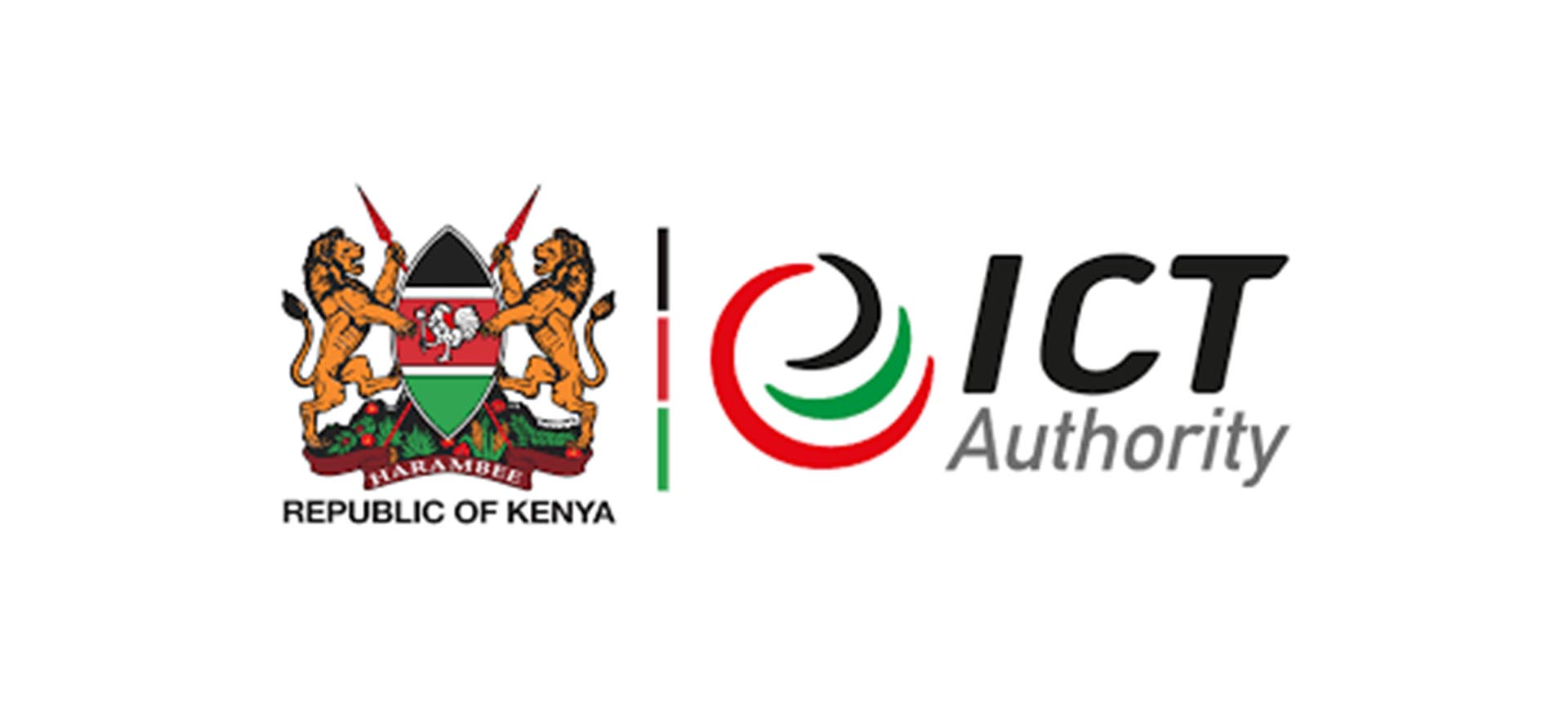
The Ministry of Information Communication and Digital Economy:
Economy: The ministry has responsibility for formulating, administering, managing and developing the Information, Broadcasting and Communication policy. Its vision is to make Kenya a competitive knowledge- based economy. Its mission is to facilitate universal access to ICT infrastructure and services all over the country.
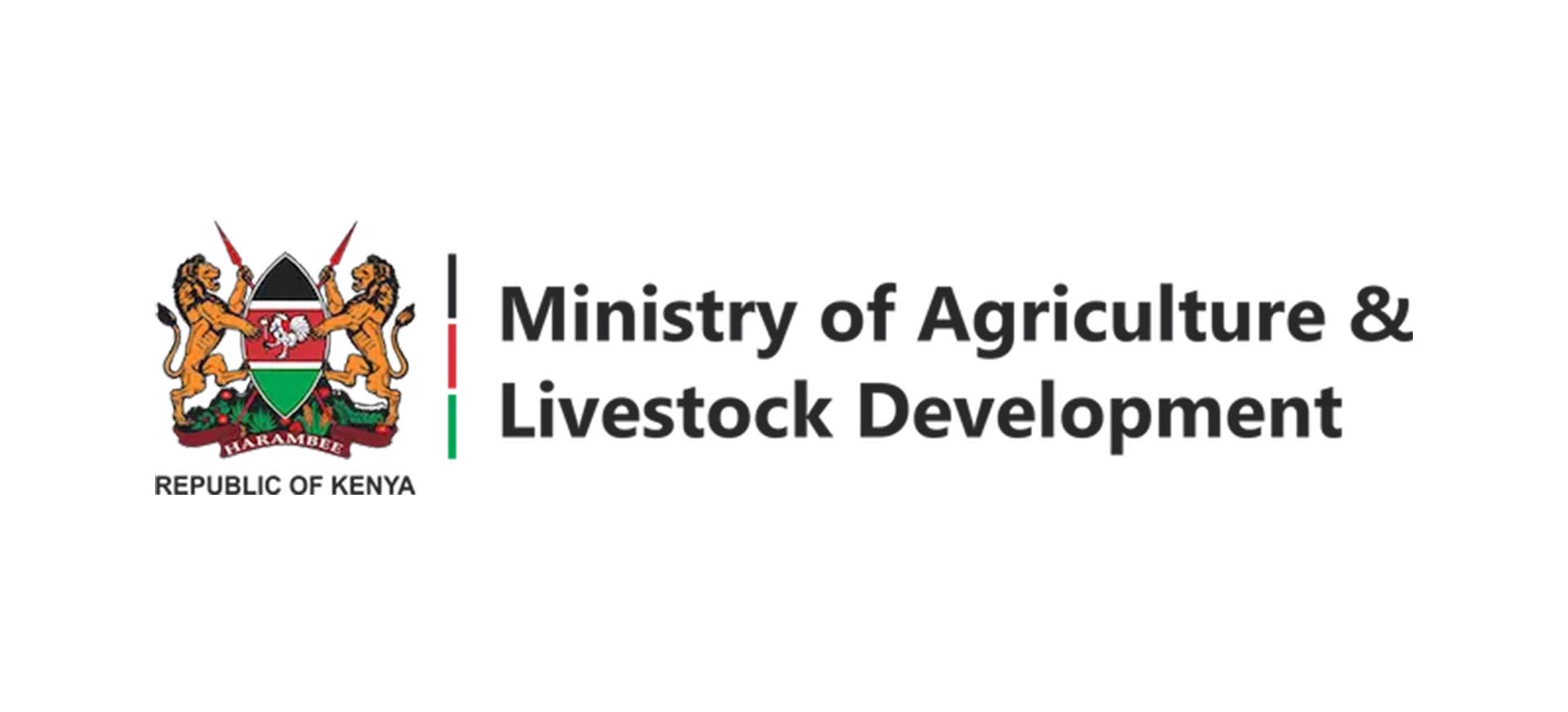
The Ministry of Agriculture and Livestock Development:
The mandate of the Ministry of Agriculture and Livestock Development is to create an enabling environment for sustainable development of agriculture for food and nutrition security and economic development.
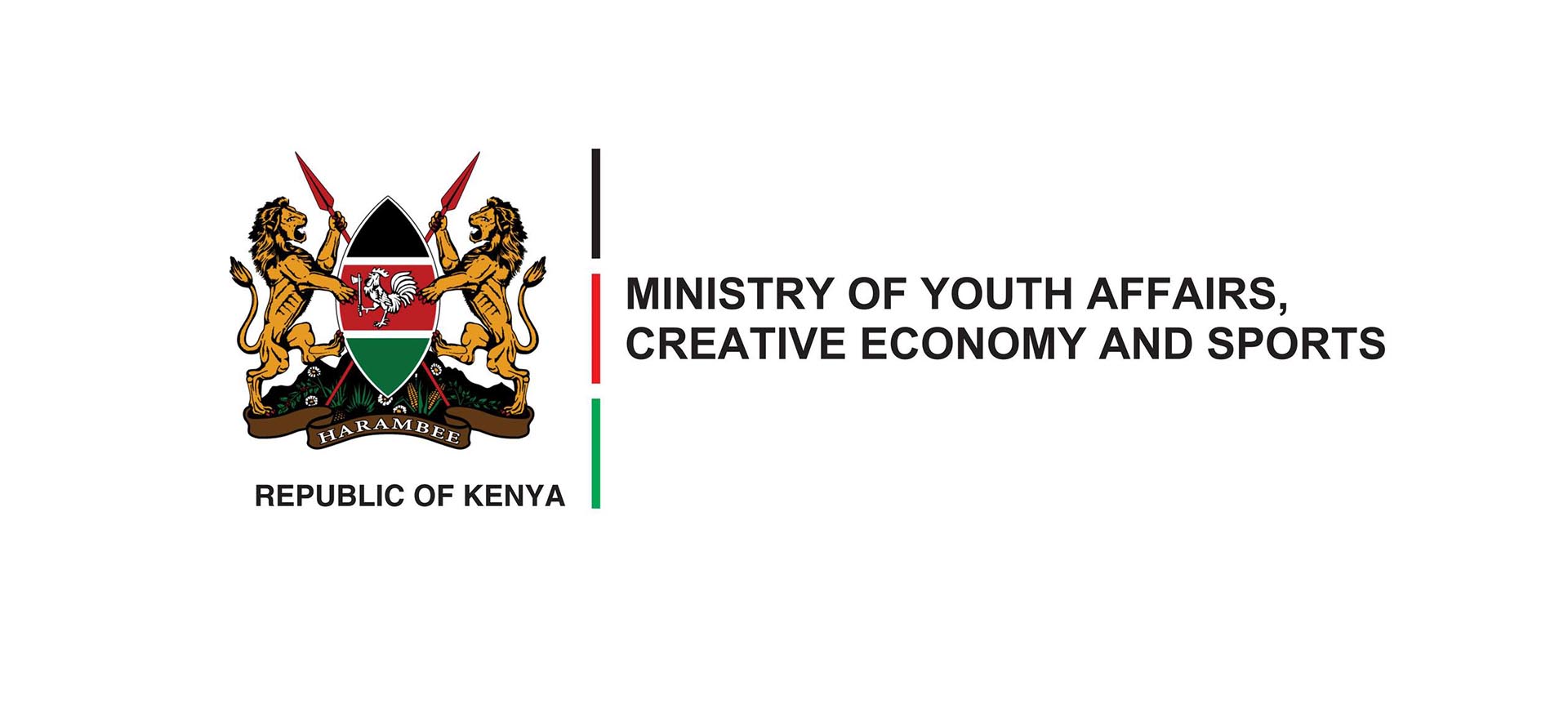
The Ministry of Youth Affairs, Creative Economy and Sports
The ministry’s mission is to provide leadership, coordination and an enabling environment for youth empowerment and development of libraries, sports and Creative Arts.
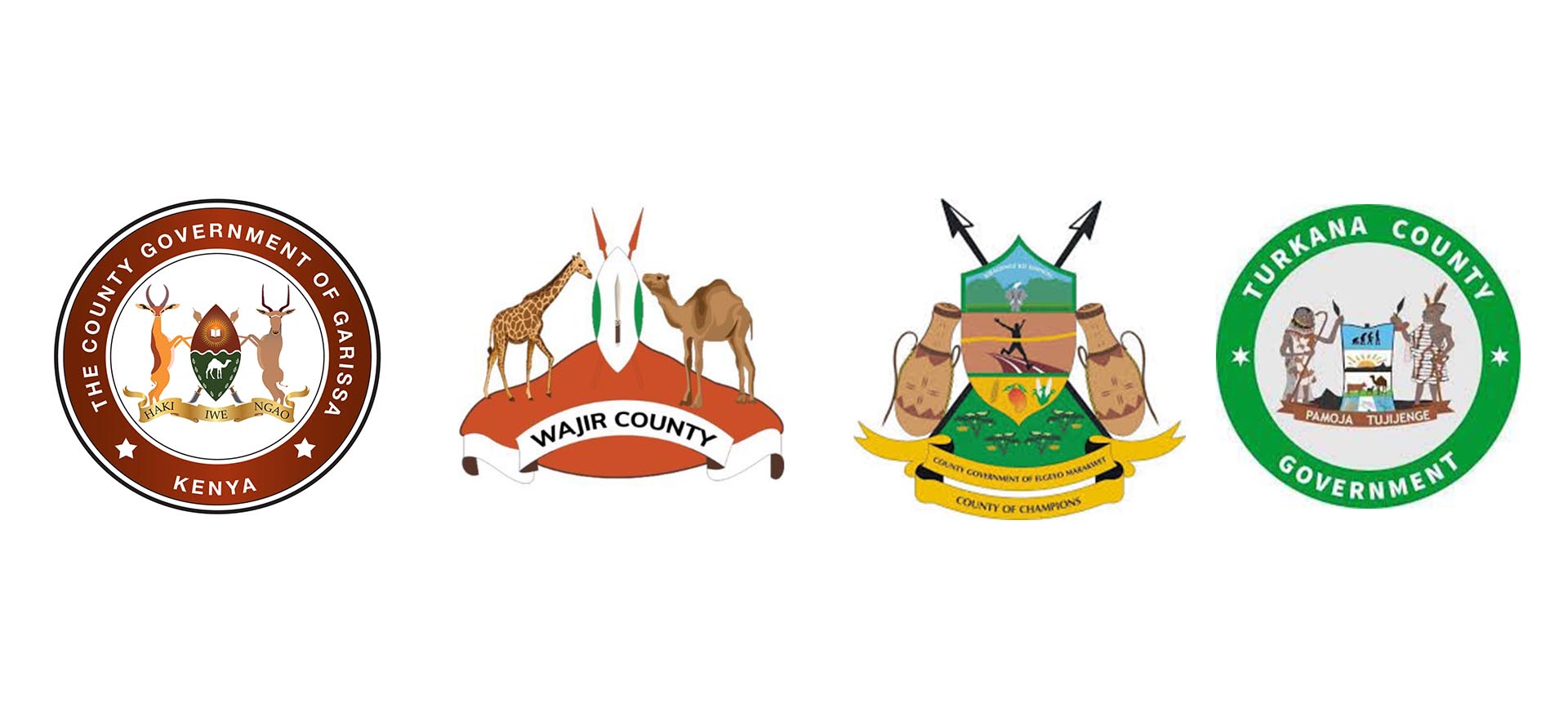
County governments of Garissa, Wajir, Elgeyo-Marakwet and Turkana
County governments in Kenya are legally obligated to involve communities in local governance. This responsibility is outlined in both the Constitution and the County Governments Act of 2012. Key obligations include: empowering communities; facilitating participation; promoting transparency; seeking public input; and establishing dialogue.

The ICT Authority (ICTA)
a State Corporation under the Ministry of Information Communication and Technology. Their broad mandate entails enforcing ICT standards in Government and enhancing the supervision of its electronic communication. They also promote ICT literacy, capacity, innovation and enterprise.
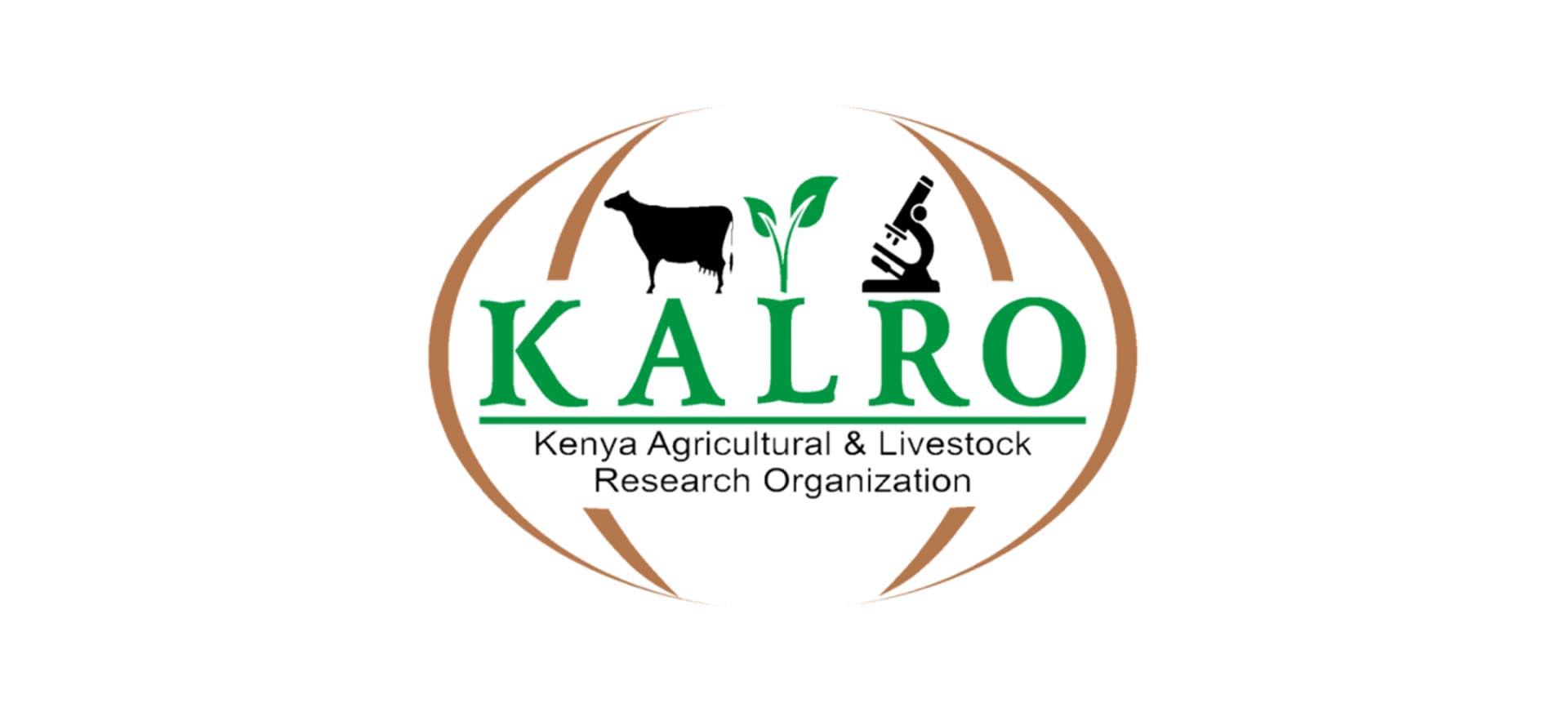
Kenya Agricultural Livestock and Research Organization
The mandate of KALRO as stated in the Act includes to regulate in Kenya research in crops, livestock, genetic resources, and biotechnology; research in crops and animal diseases; expedite equitable access to research information, resources, and technology and promote the application of the research findings and technology in the field of agriculture.
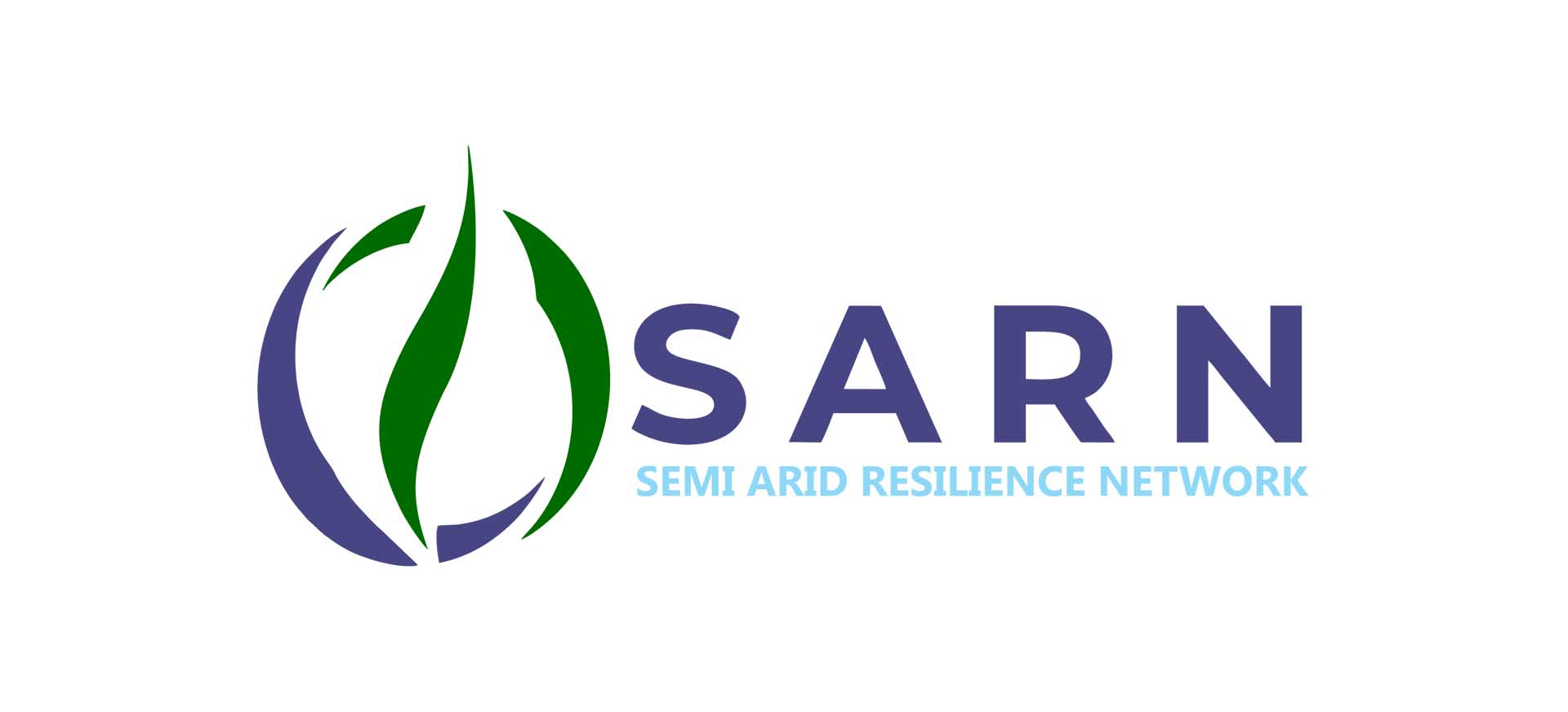
The Semi-Arid Resilience Network (SARN)
a dynamic NGO dedicated to empowering communities in Kenya's semi-arid regions. Operating in Garissa, Wajir, Mandera, Isiolo, and Tana River counties, we champion sustainable, community-driven solutions that align with county development priorities, UN Sustainable Development Goals for Vision 2030 and Agenda 2063.To achieve this, SARN focuses on Youth Development, Peace and Security, Social Protection, Policy and Governance, Climate Action and Resilience, Alternative Livelihoods, Research, Partnership and Knowledge Management.
Roles and Training for Community Digital Champions (CDC)
Who is a Community Digital Champion?
The Community Digital Champion will play a key role in delivering foundational digital literacy skills to residents of Garissa, Wajir, Elgeyo-Marakwet and Turkana. Using the ICT Authority’s (ICTA) Basic Digital Skills curriculum, the Community Digital Champion will help individuals acquire essential digital skills through face-to-face and one-on-one training sessions. The position requires a committed individual with strong digital literacy skills, a passion for community service, and the ability to engage with local populations in their dialects.
Key Responsibilities of a Community Digital Champion (CDC)
- Training Delivery: Provide digital literacy training to 150 people in County governments of Garissa, Wajir, Elgeyo-Marakwet and Turkana, adapting teaching methods to meet diverse learning needs.
- Training Preparation: Attend sessions with a Master Trainer, and ensure readiness with devices and stable internet for virtual preparation.
- Community Engagement: Engage with communities using English, Kiswahili, and local dialects, targeting individuals who would benefit most from digital literacy.
- Progress Tracking and Reporting: Monitor trainee progress, collect feedback, and submit reports on training outcomes.
- Technology Utilization: Utilize digital devices effectively during training and adapt content for virtual and in-person sessions.
Courses Offered to Community Digital Champions by ACWICT
The CDCs will be trained on the following 12 Basic Digital Skills courses which follow the ICT Authority’s Smart Academy curriculum. This course is called the Basic Digital Skills. The Basic Digital Skills training is free for all participants who are selected and trained by ACWICT. If a participant needs to be certified by the government, then they will need to pay KES 500 to the ICT Authority of Kenya through the SmartAcademy.go.ke. The certification has been subsidised from KES 2500 to KES 500.
- Digital Devices in a Digital Workspace.
- Skills in Basic Productivity Tools.
- Communication and Collaboration.
- Accessing Government Services & Youth Opportunities.
- Basic Video Production and Editing.
- Learning Online.
- Basic Online Work Skills.
- Online Business & Digital Entrepreneurship.
- Cyber Hygiene for Workers.
- Basic E-Waste Management.
- Soft, Life, and Leadership Skills.
- Health (Mental Health) and Nutrition Skills.
The CDCs will cascade the 6 ICT Authority Foundational digital skills to the community.
The CDCs will cascade the following Foundational Digital Skills courses that follow the ICT Authority’s Smart Academy curriculum.
- F101 Operating Digital Devices
- F102 Making Social Connection
- F103 Doing Business
- F104 Accessing Government Services
- F105 Cyber Hygiene for Everyone
- F106 eWaste Management
Training and Certification
Is certification mandatory?
No, the certificate is optional. It is only for those who wish to undertake the assessment and get a certificate from the ICT Authority’s (ICTA) at a cost of KES 500/ USH 15,000 and NOT by ACWICT. More information available at:SmartAcademy.go.ke
Why is there a fee for certification?
The cost of Training has been subsidised at KES 2,500/ USH 75,000. However, if a participant needs to be certified by the government, then they will need to pay KES 500/ USH 15,000 to ICTA for the certification for the Basic Skills available on SmartAcademy.go.ke.
What is the value of certification if I already have skills?
The people who are being engaged as beneficiaries need to have a common understanding of the content being delivered under the project. This is to ensure that content and awareness that is being offered at the community level is standardized and in line with the Government of Kenya ICT curriculum. This is different from what people are certified for. The knowledge gained is not lost. One can drop off.
How is the assessment process conducted?
When I want to pay at smartacademy.go.ke, which course should I choose? This course is called the Basic Digital Skills. The listed fee is KES 2500/ USH 75,000. You need to register on smartacademy.go.ke to get a waiver of KES 2000/ USH 60,000. A code will be sent to you which will grant you the waiver. The certification has been subsidised from KES 2500/ USH 75,000 to KES 500. The code is valid for 2 weeks.
E-Learning Portal and Technical Support
How do I log into the training ?
All classes are conducted via Microsoft Teams platform. You are required to download the Microsoft teams app to suit the kind of device you will be using. We highly encourage you to sign up with a Microsoft account.
Tip: Ensure your credentials are correct. Contact support if you face issues. All students are contacted and sent an e-learning guide when they are being onboarded to the course. Refer to the email you used to register for the course for the e-learning guide. If you still have challenges, contact the helpdesk informationcentre@acwict.org or through your Cohort WhatsApp channel.
Is the meeting online or physical? Which platform is used for the training?
All training sessions will be done online on the Microsoft Team Platform. Participants are encouraged to download the Microsoft teams app mobile or desktop applications, which are available on Android, Apple Mac OS/iOS, and Windows in their respective application stores.
How many times can a CDC attend the training?
Each Community Digital Champion (CDC) is entitled to attend only one Training of Trainers (TOT) class, based on their county of residence. Multiple attendances are not permitted, as the project is designed to ensure equitable access and coverage across all regions.
Can I attend the training using more than one device?
No. Each CDC must attend the training using only one device. Logging in with multiple devices at the same time is strictly not permitted and will result in discontinuation from the project. This measure ensures transparency, accurate attendance tracking, and fair participation for all CDCs.
I can’t access my account or courses are missing.
If you encounter issues, contact the helpdesk at informatincentre@acwict.org or use your Cohort WhatsApp channel for support. ACWICT WhatsApp: +254 791 400 624 / +254 791 512 244
Contact ICTA: Email: citizens@icta.go.ke ,Phone: +254710 521418 or +254721553464.
Internet Bundle Support and Facilitation
Are we provided with internet bundles for training?
Yes, each participant will receive a one-off KES 1000 bundle to facilitate the online training. Bundles will only be given to students who attend the classes, and fill out the surveys that have been shared in the onboarding email.
What if the provided bundles aren’t enough?
Participants are encouraged to utilize the weekly and daily bundles provided by Safaricom, Airtel, and Telkom for optimal data usage. (ACWICT is offering the training while ICTA does the certification.)
|
Network
|
Daily Bundle (KES 200)
|
Weekly Bundle (KES 1000)
|
|---|---|---|
|
Airtel
|
2 GB + Free WhatsApp
|
6.5 GB + Free WhatsApp
|
|
Safaricom
|
500MB + 500 SMS + WhatsApp
|
3 GB + WhatsApp
|
|
Telkom
|
2GB data + 2GB Night bundle + Free WhatsApp + 60 Telkom Mins
|
5 GB + Free WhatsApp
|
Why are data bundles provided but certification isn’t free?
Internet bundles are provided to ensure access for all participants during training. Certification is administered by ICT Authority’s (ICTA) , which charges a fee for this service.
When are we getting airtime?
Participants will be sent a one-off KES1000 airtime to cater for bundles to participate in the online training over the next 4 days for the students. Please note that this will be for participants who will be available and ready to undertake the course.
Will the airtime be sent as M-PESA?
The connection facilitation will be sent as M-PESA, based on the contact mobile number you used to apply and register for the course across all networks.
Post-Training Steps and Employment
What happens after the 4-day training?
After completing the course, the local organisation in the subcounty (partners in this project) will contact successful participants within two weeks. To be considered successful, participants must attend all 12 classes and complete all the surveys sent to them. The partners will ultimately choose which participants they want to work with.
Is there a salary for CDCs?
In this regard, ACWICT commits to paying you for the number of citizens trained who are residents of your county at a rate of Kshs. 100 per citizen. This payment is also tied to the validity of your data.
Are we under contract for the CDC position?
Details regarding contract duration and specific terms will be provided to those selected for CDC roles.
Code of Conduct for Project Participants
Introduction
ACWICT is committed to providing a welcoming, safe, and inclusive environment for all participants, including attendees, whether physical or virtual. This Code of Conduct outlines our expectations for participant behaviour as well as the consequences for unacceptable behaviour. It applies to all ACWICT events, including any other gatherings organised, hosted, or sponsored by ACWICT. ACWICT supports a culture of reciprocal respect and does not tolerate discrimination or harassment in any form.
1, Purpose
The purpose of this Code of Conduct is to ensure that all ACWICT projects, events are a safe space for collaboration, sharing of knowledge, interaction and networking. We seek to foster a safe and productive meeting environment where everyone, regardless of affiliation, background or identity, can participate fully and freely without fear of harassment or discrimination.
2. Scope
This Code of Conduct applies to all participants at ACWICT projects, events, including but not limited to: attendees, speakers, moderators, panelists, guests, volunteers, organisers, sponsors, exhibitors, and staff. It applies to all forms of communication and interaction, both in-person and online, including event-related social media activity.
ACWICT events include virtual and physical events including but not limited to: meetings, conferences, roundtables, receptions, technical events, expert meetings, workshops, trainings, exhibits, side events, and any other forum organised, hosted or sponsored in whole or part by ACWICT wherever it takes place.
3. Expected Behaviour
All participants are expected to:
- Treat everyone with respect, courtesy, and consideration. Do not engage in harassment, discrimination, or demeaning behaviour.
- Be mindful of your language and behaviour. Be inclusive and welcoming to all participants, regardless of their background, identity, or personal characteristics.
- Engage constructively, contribute positively to discussions, respect differing viewpoints, and engage in dialogue that is respectful and productive.
- Communicate openly and thoughtfully with others, listen well to others, and be considerate of the multitude of views and opinions that are different from your own.
- Respect the privacy of other participants and the confidentiality of discussions where applicable.
- Comply with local laws, venue regulations, and organisational policies, including those related to health and safety.
- Abide by standards of integrity and professional ethics.
- Report conduct concerns promptly.
4. Unacceptable Behaviour
Unacceptable behaviour includes, but is not limited to:
- Any form of harassment, including but not limited to verbal, physical, or sexual harassment, intimidation, or abuse.
- Discriminatory remarks or behaviour based on race, ethnicity, nationality, gender, gender identity or expression, sexual orientation, disability, age, religion, or any other characteristic.
- Threats or acts of violence, including physical assault, intimidation, or threatening language.
- Sustained disruption of talks, presentations, or other event activities, whether in person or online.
- Unwanted physical contact, sexual attention, or advances.
- Displaying or distributing inappropriate or offensive images or materials.
- Violations of others’ privacy by taking photographs, recordings, or screenshots of individual’s communications without consent.
- Consumption or possession of illegal narcotics of any form under any circumstances.
- General misconduct, including bullying, creating disturbance, disruptive or offensive behaviour, breaching professional boundaries and any activity that threatens the safety of others.
- Knowingly making false or misleading claims about prohibited conduct.
5. Consequences of Unacceptable Behaviour
ACWICT reserves the right to take any action it deems appropriate in response to unacceptable behaviour, including but not limited to:
- Requesting that the offender immediately stop their offensive behaviour.
- Issuing a formal warning to the participant.
- Removal of the participant from the event.
- Barring the participant from future ACWICT events.
- Reporting the behaviour to the employer or local authorities if necessary.
6. Reporting Procedures
If you experience or witness unacceptable behaviour, please document and report it as soon as possible. Reports can be made to:
- Event Organisers: Contact any member of the ACWICT team in person or via the event’s communication channels.
- Designated Contact: A designated contact person for reporting incidents will be identified at the onset of each project. Contact information will be provided in project materials.
- Complaints Channel: Reports may be emailed to complaints informationcentre@acwict.org
All reports will be handled in a prompt, confidential, impartial, nondiscriminatory, and in a constructive and sensitive manner. The identity of the person reporting an incident will be kept confidential unless otherwise required by law or requested by the individual. Complaints may be made without fear of reprisal.
7. Response to Reports
ACWICT is committed to addressing all reports of unacceptable behaviour fairly and promptly. The response process will typically include:
- Acknowledging receipt of the report.
- Conducting an investigation into the reported behaviour.
- Determining and implementing appropriate actions based on the findings of the investigation.
- Communicating the outcome of the investigation and the actions taken to the person who made the report.
8. Appeals
Participants who believe they have been wrongly accused of unacceptable behaviour may appeal the decision. Appeals should be submitted in writing to the ACWICT complaints channel within 7 days of the decision.
9. Prohibition of retaliation
Retaliation against those who file a report or have filed a report after witnessing an incident is prohibited. Threats, intimidation and any other form of retaliation are not tolerated and ACWICT or another entity responsible for a ACWICT event will take any reasonable and appropriate action needed to prevent and respond to retaliation, in accordance with applicable policy, rules and regulations.
10. Amendments
This Code of Conduct may be amended or updated from time to time to reflect changes in best practices or organisational needs. Participants will be informed of any significant changes.
11. Declaration
Before registering for, attending or participating in a ACWICT event – whether virtually or in person –you must be in a position to agree to the following declaration:
- I have read carefully and understand the above Code of Conduct for projects
- I hereby agree to abide by its requirements and commit to upholding the safeguarding principles and standards of conduct required.
I declare that:
- I am not currently suspended due to an investigation by either my employer or ACWICT.
- I have not had allegations of harassment, discrimination or sexual misconduct upheld.
- I have not previously been found to have violated any of the behaviours outlined in this Code of Conduct.
- I have not received sanctions by the ACWICT which prevent me from participating in this meeting or event.
In the event of a violation of this Code of Conduct, I accept that:
- My organisation (if relevant) may be notified of the violation and proposed course of action.
- Support may be withdrawn from me to attend the event, and I may not be invited to future events.
- ACWICT is not liable or responsible for any legal actions brought against me and I will be responsible for all legal costs in such circumstances.
This Code of Conduct serves as a guiding document to ensure that ACWICT events are constructive, safe, and inclusive. All participants are encouraged to contribute to maintaining this standard.
Privacy Notice
Our Commitment
ACWICT (African Centre for Women Information and Communications Technology) is dedicated to safeguarding your privacy and ensuring that your personal data is protected. This Privacy Policy outlines how we collect, use, and protect your personal information in compliance with the Data Protection Act, 2019 (Kenya). By interacting with us, whether online, in person, or through any of our services, you agree to the terms outlined in this policy.
About us
ACWICT is a multi-stakeholder Think Tank for ICT policy and regulation which is a catalyst for reform in the Information and Communication Technology sector. ACWICT, is a trust registered in Kenya, is the entity that determines how and why your data is processed. As part of our work, we engage in research, events, training, advocacy, and collaboration with various stakeholders. This means that ACWICT is the ‘controller’ of your data. Therefore, this policy applies to all the personal data we collect through these activities.
1. Personal Data Collected
Personal data means any information that can be used to identify an individual. We collect and process personal data necessary for the operation of our services, including:
- Personal Identification Information: Name, gender, disability status, age, financial and payment information, postal and physical addresses, email address, phone number, and other contact details.
- Professional Information: Job title, organisation, stakeholder groups, and areas of interest or expertise.
- Event Participation Data: Information related to your registration, attendance, and feedback at our events, workshops, and training sessions.
- Research Data: Information you provide through surveys, interviews, or other research activities.
- Communication Data: Emails, phone calls, and other communication records between you and ACWICT.
- Social Media Information: Data collected through interactions with our social media platforms.
- Financial Data: Payment information for services or donations, including billing address and transaction details.
- Technical Data: IP address, browser type, and other data automatically collected when you visit our website.
2. How We Use Your Personal Data
The personal data we collect is used for the following purposes:
- Service Delivery: To provide you with information, services, or products that you request from us.
- Communication: To respond to queries, send you updates, newsletters, and other relevant communications.
- Event Management: To manage your participation in our events, workshops, and training sessions.
- Research and Advocacy: To conduct research and analysis for policy development and advocacy purposes.
- Payment Processing: To process payments, monitor transactions and donations.
- Security: To protect our IT systems and data against unauthorised access and breaches.
- Compliance: To comply with legal obligations and regulatory requirements.
- Online Performance: To monitor website performance and implement updates.
3. Legal Basis for Processing
We process your personal data based on one or more of the following legal grounds:
- You have given us your consent to process your data for specific purposes.
- Processing is necessary for the performance of a contract with you or to take steps at your request before entering into a contract.
- Processing is necessary for compliance with a legal obligation to which we are subject.
- Processing is necessary for the legitimate interests of ACWICT, provided those interests are not overridden by your rights and interests.
4.Data Sharing and Disclosure
ACWICT treats all personal data as strictly confidential. Your data will be collected and processed primarily by our staff. Access to your personal data is limited to staff who have a legitimate need to see it for the purpose of carrying out their job at ACWICT. We do not sell, rent or trade your data for any purposes to third parties. We may share your personal data with third parties in the following circumstances:
- We may share your data with third-party service providers who assist us with IT services, payment processing, logistics, event management, and other operational needs.
- We may share your data with our partners and collaborators for joint events, research, and advocacy projects.
- We may disclose your data to comply with legal obligations or to protect our rights and interests.
- We may share your data with third parties when you have provided explicit consent for such sharing.
We require all third parties to respect the security of your personal data and to treat it by the law. We do not allow our third-party service providers to use your personal data for their own purposes – we only permit them to process your personal data for specified purposes and in accordance with our instructions.
5. Security of Personal Data
We take appropriate technical and organisational measures to protect your personal data against unauthorised access, loss, misuse or disclosure. These measures include encryption, access controls, and regular security audits.
6. Your Rights
You have the following rights concerning your personal data:
- The right to request access to the personal data we hold about you.
- The right to be informed about what your personal data will be used for.
- The right to request the correction of inaccurate or incomplete data.
- The right to request the deletion of your personal data under certain conditions.
- The right to request the restriction of data processing under certain conditions.
- The right to receive your data in a structured, commonly used, and machine-readable format.
- The right to object to the processing of your data based on legitimate interests.
- The right to withdraw your consent at any time for processing based on consent.
To exercise any of these rights, please contact us using the details provided in the “Contact Us” section below.
7. Children’s Privacy
Our services are generally not intended for children under the age of 18, and we do not knowingly collect personal data from children without parental consent. However, if we need to collect personal data from a child under the age of 18, the parental consent of the parent or guardian shall be obtained.
8. International transfers
Where we transfer your personal data outside Kenya, we ensure that appropriate safeguards are in place to protect your data, such as using Standard Contractual Clauses or equivalent mechanisms.
9. Data Retention
We retain your personal data only for as long as necessary to fulfil the purposes for which it was collected or as required by law. When your data is no longer needed, we will securely delete or
anonymize it. We will keep your personal data according to the Records Retention Schedule.
10.Complaints
If you wish to exercise any of these rights, please contact our Data Protection Officer
through vindimuli@acwict.org
11. Privacy Policy Updates
We may update this External Privacy Policy from time to time to reflect changes in our practices or legal requirements. When we make significant changes, we will notify you through our website or other communication channels.
Safeguarding Complaint Form
ACWICT is committed to fostering a safe and respectful environment for all staff, partners, beneficiaries, and stakeholders. This form provides a confidential channel to report any safeguarding concerns, including harassment, abuse, exploitation, or misconduct.
All reports will be treated with the utmost confidentiality, and retaliation against anyone who raises a
concern is strictly prohibited. Complaints will be reviewed by ACWICT’s designated safeguarding officer, and appropriate action will be taken in accordance with our Safeguarding Policy.
If you are in immediate danger or require urgent assistance, please contact local authorities or emergency services before submitting this form. By submitting the information requested, you consent to our collection and processing of the information for the specific purpose outlined above. In case of any queries regarding this request, email:
informationcentre@acwict.org
LINK TO THE FORM: https://forms.gle/aGVXNZdVZW1J26Ei8
Additional Information
How do I resolve system issues during onboarding?
Follow the onboarding guide provided. If technical issues persist, raise your concerns through the helpdesk or Cohort WhatsApp channel.
How long is each class session?
The schedule, including class duration and timing, will be provided upon login to the eLearning portal. In a single class we have session for 5 different cohorts i.e Cohort 1, Cohort 2, Cohort 3, Cohort 4 & Cohort 5. The student should be advised to click on the Live Session Link for the Cohort he/she belongs to.
What happens if you miss a class?
You will have an opportunity to retake the class that you have missed in the subsequent cohort intake. For instance, if you missed Skills in Basic Productivity Tools course, you will only do that course and not all the 12 modules. Take NOTE, no data will be facilitated for this.
How will I know my class schedule?
Class schedules will be posted on the onboarding letter under your assigned cohort.
Is this training a scam?
No, this is a verified training initiative supported by ACWICT, UK Digital Access Programme, and Kenya’s Ministry of Information Communication and Digital Economy.
Code of Conduct for CDCs, Meetings and Events
ACWICT is committed to providing a welcoming, safe, and inclusive environment for all participants, including attendees, whether physical or virtual. This Code of Conduct outlines our expectations for participant behaviour as well as the consequences for unacceptable behaviour. It applies to all ACWICT events, including any other gatherings organised, hosted, or sponsored by ACWICT. ACWICT supports a culture of reciprocal respect and does not tolerate discrimination or harassment in any form. If you feel you have kindly, fill the Safeguarding Complaint Form. For any additional questions or clarification, please contact the ACWICT help desk at informationcentre@acwict.org
For any additional questions or clarification, please contact the ACWICT help desk at
informationcentre@acwict.org



